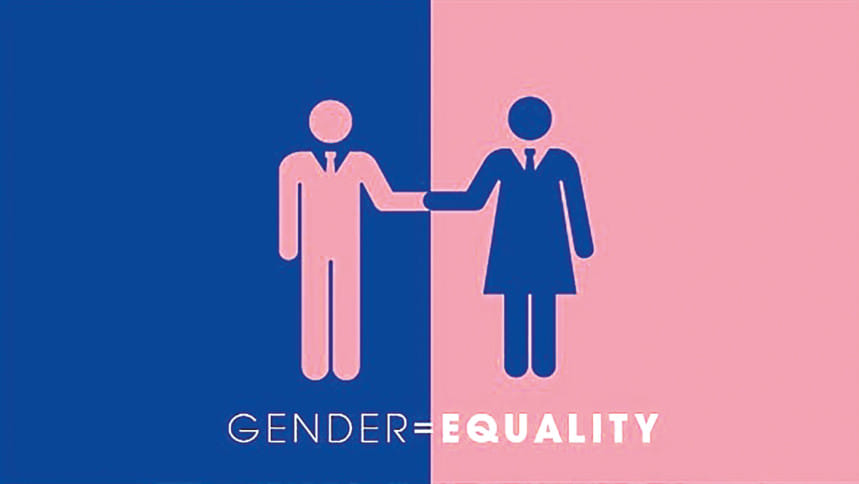Time to take CEDAW seriously

The second justification for the reservation is that the Bangladesh Constitution already grants equal rights to women therefore the need to lift those reservations does not exist. This blatant statement raises more questions than it is supposed to give answers to. If gender equality is already present in the legal framework of the country, there is no harm in nullifying those reservations.
The Convention on Elimination of All Forms of Discrimination against Women (CEDAW) is the key international human rights treaty to oppose the effects of discrimination against women and to ensure gender equality worldwide. CEDAW, also known as the Women's Bill of Rights was adopted in 1979; came into force in 1981 and to date, 189 states-parties have ratified it. The convention most articulately defines discrimination against women and is based on three core principles: the obligation to respect (equality in laws and policies); protect (non-discrimination) and fulfill (to uphold equality and eliminate gender discrimination in the entire sphere of the social and economic life).
Bangladesh ratified the convention in 1984 with reservations on several articles. Of those reservations two were lifted and two remain: Article 2 and Article 16(1c). Article 2 states the obligations of the countries to eliminate discrimination whereas Article 16(1c) emphasises equal rights and responsibilities during marriage and its dissolution. These two articles are considered to be central to the objects and purpose of the convention. Article 28(2) of the CEDAW and Article 19(c) of the Vienna Convention on the Law of Treaties (VCLT) 1969 prohibits reservations that are "incompatible with the object and purpose of the treaty."
To justify these reservations, the government of Bangladesh has repeatedly said that these two articles of CEDAW contradict the Sharia Law based on the Holy Quran and Sunnah. However, several arguments can be made against this argument.
Firstly, Sharia governed Muslim countries like Jordan, Kuwait, Lebanon, Turkey, Tunisia, Yemen, etc. have ratified CEDAW without any reservations. It is doubtful that Islamic religious belief is the prime motivator of these reservations. Political and evolving socio-economic considerations influenced by strategic alliances play a vital role here.
Secondly, how the lawmakers interpret Sharia Law is a big determining factor of women's rights. Politicising Sharia law and using Islam as a political tool to obtain indulgence from other parties should be strictly condemned. Denying women equal rights in a way undermines the basic principles of Islam and religious, traditional or cultural practices cannot justify the violation of the convention. The right interpretation of the scriptures could set things right if they acknowledge and promote the dynamic nature of Islam as a religion.
Thirdly, Bangladesh is a Muslim majority country but there are significant number of people, who are not governed by Sharia law. However, the effects of the reservations on them are unaccounted for. The reservations on the ground of Sharia law also defeat the purpose of the secular nature of the State, one of the fundamental principles of the Constitution of Bangladesh.
Fourthly, it is imperative to acknowledge the deep-rooted patriarchy in play. Bangladesh has passed and enacted laws and ratified different conventions that did not strictly adhere to Sharia principles. The resistance to laws concerning gender equality in the private sphere comes from widespread misogynistic attitudes.
The second justification for the reservation is that the Bangladesh Constitution already grants equal rights to women therefore the need to lift those reservations does not exist. This blatant statement raises more questions than it is supposed to give answers to. If gender equality is already present in the legal framework of the country, there is no harm in nullifying those reservations. Indeed, a full ratification will not solve the problem of discrimination but it will make the States obligated to implement equality through bringing likewise changes in the national legislations.
A quick overview of the situation tragically shows why CEDAW only has a referral value and little legislative significance after decades of its ratification. There is a reason why CEDAW is different from all other core human rights treaties which also protect women's human rights. One of the key elements of Sustainable Development Goals is Gender equality and CEDAW is exclusively devoted to attaining it through non-discrimination. The alarming rate of violence against women which accelerated dangerously during the COVID-19 pandemic demands a full ratification of CEDAW without any reservations. Bangladesh should resolutely discourage laws, practices and institutions that promote notions of inequality and discrimination.
The writer is an LL.M. student, University of Chittagong.

 For all latest news, follow The Daily Star's Google News channel.
For all latest news, follow The Daily Star's Google News channel. 



Comments